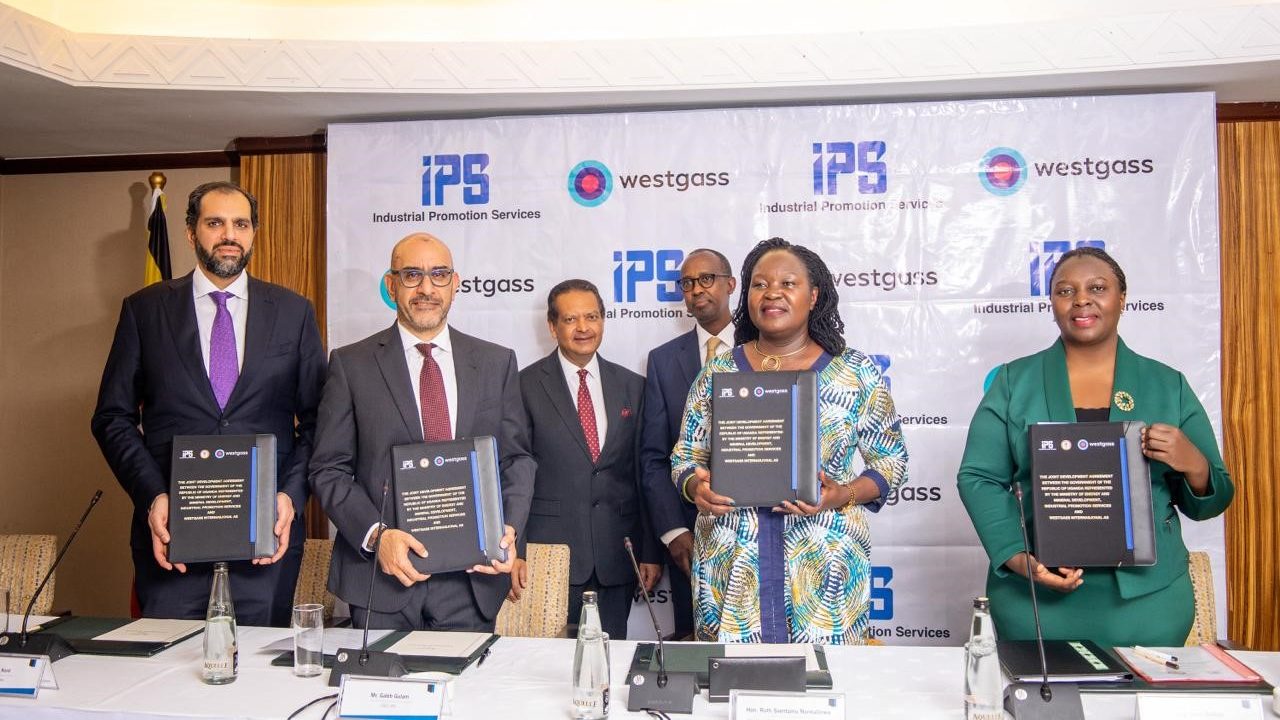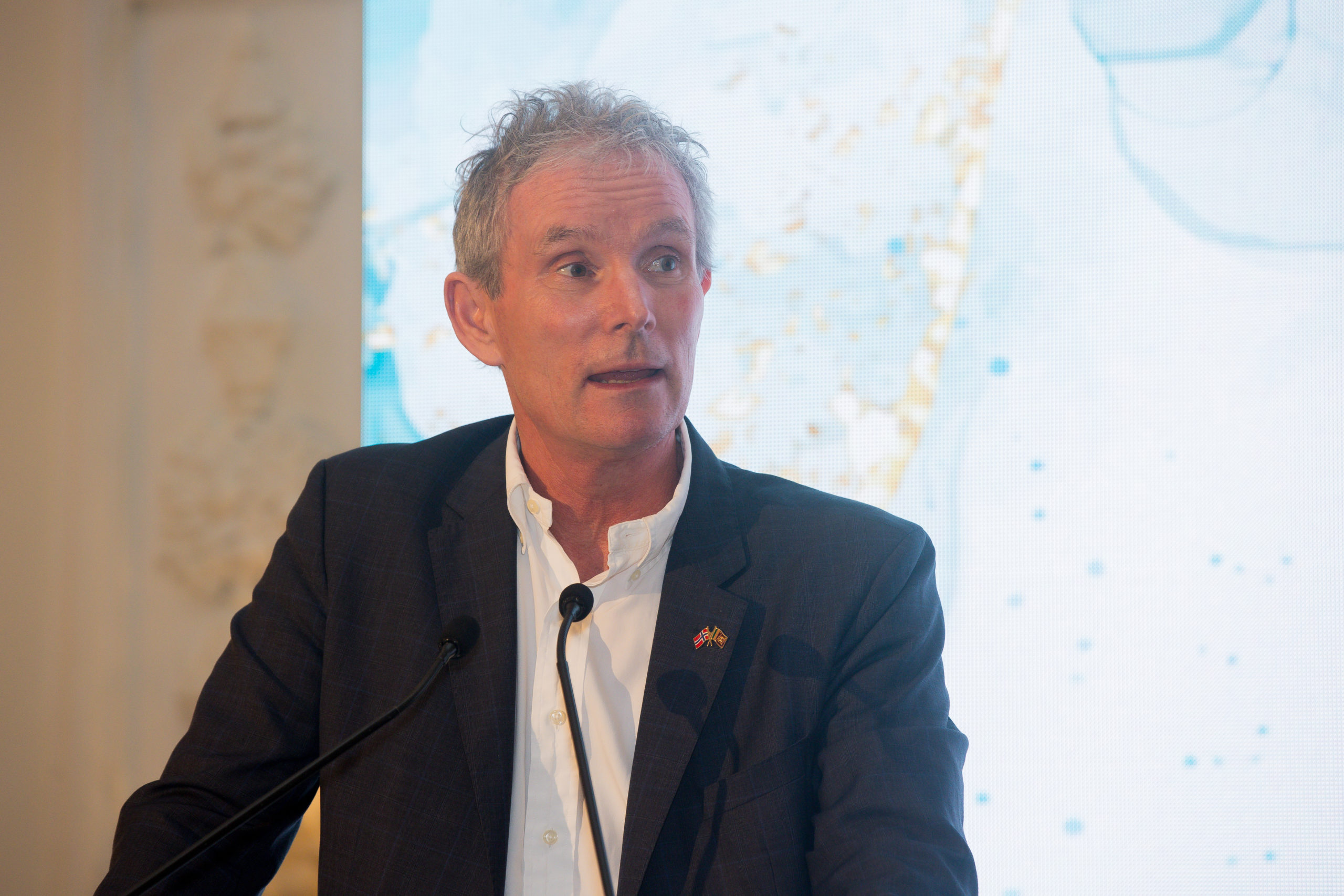February 16, 2024
Norfund is partnering with Westgass and IPS in investing in fertilizers based on green hydrogen in Uganda. Strong industrial partners have set joint targets for the annual production of 200 000 tons of locally produced fertilizer, which will provide increased income and food security, without the greenhouse gas emissions usually entailed in such production.

In a pioneering effort, Industrial Promotion Services (IPS), the industrial and infrastructure development arm of the Aga Khan Fund for Economic Development, and Westgass Internasjonal, a Norwegian green energy company focused on accelerating the transition from fossil fuels through green hydrogen, have signed a joint development agreement (JDA) with the Government of Uganda, to develop a green hydrogen based fertilizer production facility, leveraging on the country’s abundant renewable energy resources. Norfund, the Norwegian Investment Fund for developing countries, is co-financing the project through a convertible loan, and the project has received grant funding from Norad, the Norwegian Agency for Development Cooperation.
The project aims to produce 200 000 tons of fertilizer every year. Through an agreement on the supply of 100 MW of renewable energy from a local hydropower plant, the partners will produce green hydrogen through electrolysis. The green hydrogen is then combined with nitrogen (produced by an air separation unit) to produce green ammonia. This is further processed with dolomite or phosphates to produce calcium ammonium nitrate (CAN) and fertilizers based on nitrogen, phosphorus, and potassium (NPK), which are types of fertilizers already in use in the region.
A green pioneer project
The fertilizer that is currently used in Uganda and throughout the region is mainly imported. Natural gas-based production of mineral fertilizers is dominant in the world today and is a major source of GHG emissions. High import prices combined with lack of stable access to local fertilizer makes it hard to develop the local agriculture in the region.
“By establishing local production of sustainable fertilizer, Uganda will be able to become a pioneering country when it comes to adopting green technology, which will ensure economic growth and stimulate local food production while avoiding over 200 000 tons of CO2 per year,” says Kinar Kent, CEO of Westgass.
Access to fertilizer at a reasonable price increases income and food security
Norad has supported the project through a grant. Norfund is initially investing in the project through a convertible loan under the Frontier Facility, aimed at early-phase investments, but aims to invest further as the project develops. Norfund’s goals is to create jobs and improve lives by investing in sustainable businesses. This project will create 300 direct jobs, but have much larger ripple effects.

“We see an enormous potential in increasing the yields of the farmers in the region and thereby providing increased income and food security, without increasing GHG emissions,”
Tellef Thorleifsson, CEO in Norfund
Uganda’s consumption of fertilizer is between 0,23 and 1,5 kg/hectare, far below the average of 8 kg/hectare in sub-Saharan Africa, and only around 24 percent of agricultural households in the country use mineral fertilizers, according to the FAO. Imported fertilizer is expensive, which makes it more difficult to increase its use, and the price has increased further because of increased gas prices following Russia’s invasion of Ukraine.
“A local production facility for mineral fertilizer will reduce costs and provide greater opportunities to use fertilizer to increase yields, while at the same time reducing the environmental impact,” says Kent.
Solid partners combine industrial expertise and local experience
Norwegian Westgass Internasjonal is the international project development arm of Westgass Hydrogen, a green energy company that focuses on accelerating the transition from fossil fuels in Europe and emerging markets. IPS is the industry and infrastructure development arm of the Aga Khan Fund for Economic Development and has 60 years of experience with industry and infrastructure in Africa.
Uganda is classified by the OECD as a “Least Developed Country” (LDC).
“This is a pioneering project in an early phase, and carrying out such a project is a huge boost in a country like Uganda. However, with such strong partners who combine industrial expertise with local experience, we believe this project will create great opportunities that eventually can be scaled up further,” says Thorleifsson.
Foto: Ken Opprann